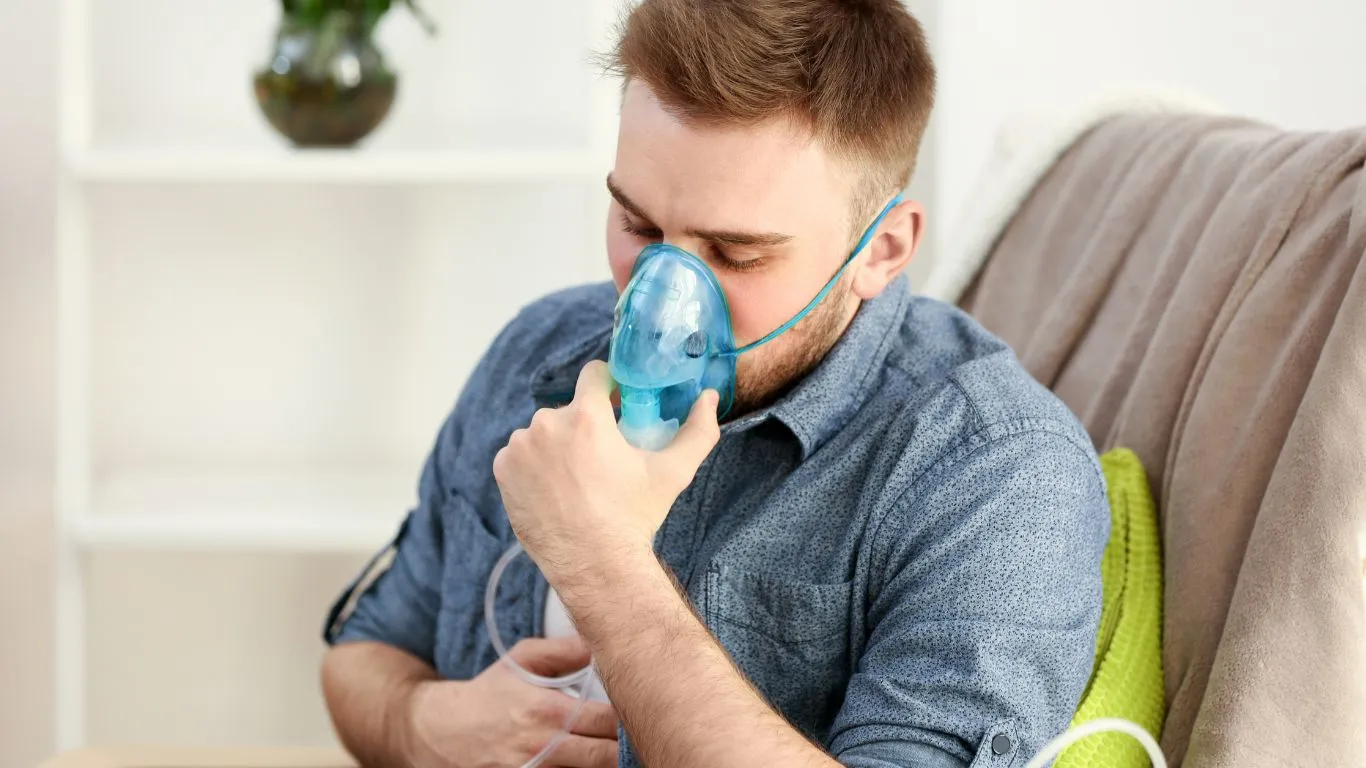Can Asthma Cause Chest Congestion? 🤔 Understanding the Link Between Asthma & Breathing Issues
Can Asthma Cause Chest Congestion? 🤔 Let’s Talk About It
If you’ve ever wondered, “Can asthma cause chest congestion?”, you’re not alone! I get it—sometimes it’s hard to connect the dots between asthma and that feeling of tightness or pressure in your chest. But yep, asthma can totally cause chest congestion, and it’s more common than you might think. Let’s break it down and talk about what’s really going on with asthma and that pesky chest congestion.
So, What’s the Deal with Asthma Anyway? 🤧
First things first: asthma is basically a condition where your airways (the tubes that let air into and out of your lungs) get all inflamed and tight. And that can lead to all sorts of symptoms like shortness of breath, coughing, and the classic wheezing sound that some people make when they breathe.
Now, chest congestion… that’s a whole other beast. It’s not just about feeling a little winded or out of breath. Chest congestion can make you feel like there’s a weight sitting on your chest, or like it’s hard to take a deep breath. So, does asthma cause that? Yep, it sure can.

Can Asthma Cause Chest Congestion? 🤔
So, here’s the scoop: when asthma flares up, your airways get inflamed. That means the muscles around your airways tighten up, and your body might start producing a bunch of mucus in response. All of this can lead to that ugh feeling of chest congestion. The mucus gets stuck, the airways are narrower, and breathing becomes more of a challenge. It’s like a traffic jam in your lungs.
It’s kinda like when you’ve got a stuffy nose but for your chest. Not fun, right?

Troubleshooting Chest Congestion Issues 💨
Okay, so chest congestion isn’t exactly something anyone wants to deal with. But let’s talk about how to troubleshoot it, especially when asthma is behind it. Here are a few things that can help:
1. Feeling Out of Breath?
I know from personal experience, nothing’s worse than feeling like you can’t catch your breath. When asthma kicks in and you’re dealing with chest congestion, you might feel short of breath even when you’re just hanging out.
What to do: If you’re not already using your inhaler, now’s the time. Those rescue inhalers are life-savers. If you’re having more frequent issues, it’s definitely a good idea to check in with your doctor about adjusting your meds.
2. Excess Mucus – Ugh, the Worst!
Anyone who’s had asthma knows that mucus can show up like an unwanted guest. It can make you feel even more congested than you already do.
What to do: Drink warm fluids (think tea or soup) to help loosen up the mucus. Some people swear by using a humidifier to keep the airways moist and help clear things out. But seriously, the most important thing is to stick to your medication routine and avoid triggers that make it worse.
3. Exercise and Chest Congestion – Double Trouble
Exercising with asthma is like playing with fire sometimes. The physical exertion can tighten up your chest even more, especially if you’re dealing with congestion. It’s frustrating, I know.
What to do: If you’re working out, make sure you use your inhaler beforehand. And if you know cold, dry air is a trigger, try to work out indoors or in a warmer, humidified space. It can make a huge difference.

Real Talk: Success Stories of Managing Asthma and Chest Congestion 💪
Okay, so let’s take a step back. I know this asthma stuff can be a lot to handle, but I’ve seen firsthand how people can take control of their symptoms with the right strategies.
Sarah’s Story 🌸
A close friend of mine, Sarah, has been dealing with asthma since she was a kid. She’s had her fair share of rough patches, especially with chest congestion. I remember her telling me about one winter when her asthma flared up every single time the temperature dropped. She’d wake up feeling like her chest was caving in, just trying to catch a breath. But after working with her doctor, she found the right combination of inhalers and a daily routine. She also started avoiding triggers like dust and pet dander, and now? Way less chest congestion, even in the colder months.
John’s Journey 🏃♂️
And then there’s John. He’s a few years older than me and used to struggle with constant chest tightness, especially when he’d exercise. I’m talking about chest congestion that made him feel like he couldn’t even finish a jog without gasping for air. It took him a while to figure out the asthma connection, but once he did, he started taking a daily asthma medication and using a bronchodilator when things got bad. Now, he’s back to running 5k’s and feeling a lot better with much less chest congestion.

Key Takeaways 🔑
- Yes, asthma can cause chest congestion. The inflammation and mucus buildup can make it feel like your chest is under pressure.
- Managing asthma properly is key to avoiding or minimizing chest congestion. Medications (like inhalers) are your best friends here.
- Know your triggers! Whether it’s allergens, exercise, or cold air, understanding what makes your asthma worse is crucial for managing chest congestion.
FAQs 💬
1. Can chest congestion last a long time with asthma?
It can if asthma isn’t well-managed. But with the right meds and avoiding triggers, chest congestion should ease up over time.
2. What’s the best way to deal with chest congestion from asthma?
Stay on top of your inhaler use, drink plenty of fluids, and avoid things like smoke, cold air, or anything that might trigger a flare-up.
3. Is chest congestion the same as wheezing?
Not exactly. Wheezing is that whistling sound when you breathe (it’s like asthma’s signature sound), while chest congestion feels like pressure or fullness in your chest.
References 📚
- American Lung Association
- Mayo Clinic – Asthma Symptoms
- National Heart, Lung, and Blood Institute – Asthma
Disclaimer 🚨
The info in this post is just to help you understand asthma and chest congestion better. It’s not meant to replace medical advice. Always check in with your doctor about any asthma symptoms you’re dealing with.
Call to Action 🚨
If you’re struggling with asthma and chest congestion, don’t wait! Chat with your doctor and find a treatment plan that works for you. And hey, if you’ve had similar experiences, drop a comment below and let’s talk about it!

Bianca Nala is a skilled writer with a deep focus on respiratory disorders. Her articles on Healthusias.com reflect her expertise, providing readers with reliable and engaging insights into respiratory health.






